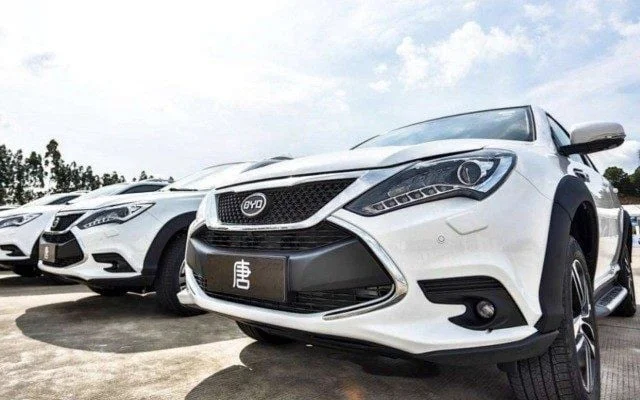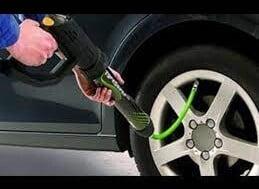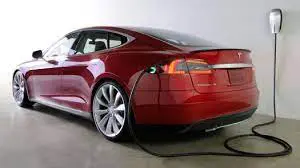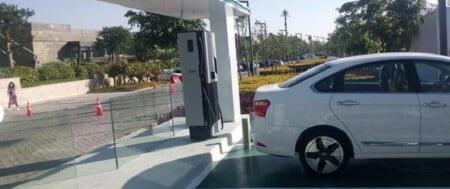all english artical in end
ثورة السيارات الكهربائية قادمة من الصين!
أقنعني أن هذا التحول العالمي في التحول من المركبات التي تعمل بالوقود والبترول إلى سيارات كهربائية جديدة، سوف تأتي عاجلا وليس آجلا. يحدث هذا التحول بالفعل في الصين التي تعد أكبر سوق للسيارات في العالم. في عام 2018، تجاوزت المبيعات الصينية 1.1 مليون سيارة، أي أكثر من 55 ٪ من جميع السيارات الكهربائية التي تباع في العالم، وأكثر من ثلاثة أضعاف ما كان قد اشتراه العملاء الصينيون قبل عامين. بلغت مبيعات السيارات الكهربائية في الولايات المتحدة في تلك السنة 358000 فقط.
من العناصر الرئيسية لسعر السيارة الكهربائية هي تكلفة البطاريات الخاصة بها – والصين تنتج بالفعل أكثر من نصف بطاريات السيارات الكهربائية في العالم. أسعار البطارية تستمر في الانخفاض. يشير محللو الصناعة الآن إلى أنه خلال خمس سنوات سيكون شراء سيارة كهربائية أرخص من سيارة تعمل بالغاز أو الديزل. تتوقع التنبؤات أن الصينيين سينتجون ما يصل إلى 70٪ من بطاريات السيارات الكهربائية في العالم بحلول عام 2021 ، حتى مع تزايد الطلب على بطاريات السيارات الكهربائية.
دعم حكومي ضخم
الصين لديها صناعة سيارات حديثة، ولكنها طموحة. فهي لم تكن قادرة أبدًا على مقارعة كفاءة وجودة شركات صناعة السيارات القائمة في صناعة السيارات التي تعمل بالوقود، ولكن السيارات الكهربائية أسهل في الصنع، مما يتيح للشركات الصينية فرصة جديدة للتنافس. لذلك، اختارت الحكومة الصينية تسليط الضوء على السيارات الكهربائية باعتبارها واحدة من 10 قطاعات تجارية أساسية لتعزيز التكنولوجيا الصناعية المتقدمة. تشمل الجهود الحكومية استخدام مليارات الدولارات لدعم تصنيع السيارات الكهربائية والبطاريات، وتشجيع الشركات والمستهلكين على شرائها. تدرك الحكومة أيضًا أن السيارات الكهربائية يمكن أن تساعد في حل بعض مشكلات الطاقة والبيئة الأكثر إلحاحًا في الصين. يخنق تلوث الهواء الهائل مدنها الرئيسية، ويشعر مسؤولو الأمن القومي بالقلق بشأن كمية النفط التي تستوردها البلاد، والصين الآن هي الدولة التي تساهم في معظم انبعاثات تغير المناخ العالمي.
شركات جديدة
وقد نشأت عشرات الشركات الصينية لصناعة السيارات للاستفادة من هذه الإعانات. أحد اللاعبين الرئيسيين هو BYD، والذي يرمز إلى “Build Your Dreams” ، ومقرها في Shenzhen قبل أكثر من عقد من الزمن ، اشترى المستثمر الملياردير وارن بافيت حوالي ربع الشركة مقابل 232 مليون دولار أمريكي – وهي حصة تبلغ قيمتها الآن أكثر من 1.5 مليار دولار. أثبتت خطط الشركة الأولية لتصدير المركبات إلى الولايات المتحدة أنها سابقة لأوانها ومتعثرة. بدلاً من ذلك، بدأت شركة BYDفي التركيز بشكل أساسي على سوق السيارات الصيني، فضلاً عن بناء الحافلات الكهربائية للسوق العالمية، والتي تهيمن عليها الآن.
مزيد من الدعم
بالإضافة إلى الدعم الحكومي لضمان حصول BYD ومنافسيها على الكثير من العملاء، بدأت لوائح حكومية جديدة بالظهور. تطالب الحكومة الصينية الآن جميع صانعي السيارات الذين يبيعون في الصين، سواء كانت شركات محلية أو أجنبية، بعمل نسبة مئوية معينة من مبيعاتهم الكهربائية، من خلال صيغة ائتمان معقدة. ستصبح الولاية أكثر صرامة مع مرور الوقت، وربما تتطلب من كل شركة تحقيق ما لا يقل عن 7 ٪ من مبيعاتها الكهربائية بحلول عام 2025.
تمتلك شركات السيارات الأجنبية الكبرى استثمارات كبيرة في الصين ولا يمكنها أن تتخلى عن السوق. إذ تبيع فولكس واجن، على سبيل المثال 40 ٪ من إنتاجها في الصين، وهذا هو السبب الرئيسي في أن الشركة تعمل جاهدة لتطوير السيارات الكهربائية.
لم تشارك شركات صناعة السيارات المحلية في الصين إلى حد كبير في سوق التصدير. يقول المحلل في صناعة السيارات الكهربائية خوسيه بونتيس إن هناك ثلاثة أسباب لهذا التردد: أولاً، السوق الصيني كبير بما يكفي لاستيعاب إنتاجهم الحالي. ثانياً ، إن العديد من شركات السيارات في الصين غير معروفة على الإطلاق في الغرب ، لذلك سيكون العملاء حذرين من الشراء من علامة تجارية غريبة. وثالثا ، لا تلتزم سياراتهم بعد بلوائح السلامة الصارمة في الولايات المتحدة وأوروبا.
ومع ذلك ، كل هذه العقبات يمكن التغلب عليها مع الوقت والمال. من المحتمل أن تدخل شركات السيارات الكهربائية الصينية السوق ذات الدخل المنخفض إلى المتوسط في الغرب، كما فعلت فولكس واجن قبل 60 عامًا.
إذا حدث ذلك – أو عندما يحدث ذلك – فقد تنتشر السيارات الكهربائية الرخيصة والفعالة عبر الغرب من الصين ، متجاوزةً جهود تسلا وغيرها من جهود السيارات الكهربائية الأمريكية والأوروبية. إلا محاولات الحكومة الغربية لحماية شركات صناعة السيارات المحلية من خلال التعريفات الجمركية والعقبات التجارية الأخرى هي التي يمكن أن تعرقل هذا التطور.
The electric car revolution is coming from China!
He convinced me that this global shift from petrol and fuel vehicles to new electric cars would come sooner rather than later. This transformation is already happening in China, which is the world’s largest car market. In 2018, Chinese sales exceeded 1.1 million vehicles, more than 55% of all electric vehicles sold in the world, and more than three times what Chinese customers had bought two years earlier. Sales of electric vehicles in the United States that year were only 358,000.
A key component of an electric car’s price is the cost of its batteries – and China already produces more than half of the world’s electric car batteries. Battery prices continue to fall. Industry analysts now suggest that in five years it will be cheaper to buy an electric car than a gas or diesel car. Forecasts predict that the Chinese will produce up to 70% of the world’s electric car batteries by 2021, even as demand for electric car batteries grows.
Huge government support
China has a modern, but ambitious auto industry. They have never been able to match the efficiency and quality of existing automakers in making fuel cars, but electric cars are easier to make, giving Chinese companies a new opportunity to compete. Therefore, the Chinese government has chosen to highlight electric vehicles as one of the 10 core business sectors to promote advanced industrial technology. Government efforts include using billions of dollars to support the manufacture of electric cars and batteries, and to encourage businesses and consumers to buy them. The government also recognizes that electric cars can help solve some of China’s most pressing energy and environmental problems. Massive air pollution is choking its major cities, national security officials are concerned about how much oil the country is importing, and China is now the country that contributes most to global climate change emissions.
New companies
Dozens of Chinese automakers have sprung up to take advantage of these subsidies. One of the major players is BYD, which stands for “Build Your Dreams,” and headquartered in Shenzhen More than a decade ago, billionaire investor Warren Buffett bought about a quarter of the company for $232 million — a stake that is now worth more than $1.5 billion. The company’s initial plans to export vehicles to the United States proved premature and bogged down. Instead, BYD began focusing primarily on the Chinese car market, as well as building electric buses for the global market, which it now dominates.
More support
In addition to government support to ensure BYD and its competitors get plenty of customers, new government regulations are emerging. The Chinese government now requires all automakers selling in China, whether domestic or foreign, to make a certain percentage of their electric sales, through a complex credit formula. The mandate will get tougher over time, possibly requiring each company to achieve at least 7% of its electric sales by 2025.
Major foreign car companies have large investments in China and cannot give up on the market. Volkswagen, for example, sells 40% of its production in China, which is the main reason the company is working so hard to develop electric cars.
China’s domestic automakers have not participated to a large extent in the export market. Electric car industry analyst Jose Pontes says there are three reasons for this reluctance: First, the Chinese market is large enough to accommodate their current production. Secondly, many car companies in China are not known at all in the West, so customers will be wary of buying from an exotic brand. And third, their cars do not yet comply with the strict safety regulations in the United States and Europe.
However, all of these obstacles can be overcome with time and money. Chinese electric car companies are likely to enter the low-to-middle-income market in the West, as Volkswagen did 60 years ago.
If that happens — or when it does — cheap, efficient electric cars could spread across the west from China, outstripping Tesla and other American and European electric car efforts. Only attempts by the Western government to protect domestic automakers through tariffs and other trade obstacles could hinder this development.
He convinced me that this global shift from petrol and fuel vehicles to new electric cars would come sooner rather than later. This transformation is already happening in China, which is the world’s largest car market. In 2018, Chinese sales exceeded 1.1 million vehicles, more than 55% of all electric vehicles sold in the world, and more than three times what Chinese customers had bought two years earlier. Sales of electric vehicles in the United States that year were only 358,000.
A key component of an electric car’s price is the cost of its batteries – and China already produces more than half of the world’s electric car batteries. Battery prices continue to fall. Industry analysts now suggest that in five years it will be cheaper to buy an electric car than a gas or diesel car. Forecasts predict that the Chinese will produce up to 70% of the world’s electric car batteries by 2021, even as demand for electric car batteries grows.
Huge government support
China has a modern, but ambitious auto industry. They have never been able to match the efficiency and quality of existing automakers in making fuel cars, but electric cars are easier to make, giving Chinese companies a new opportunity to compete. Therefore, the Chinese government has chosen to highlight electric vehicles as one of the 10 core business sectors to promote advanced industrial technology. Government efforts include using billions of dollars to support the manufacture of electric cars and batteries, and to encourage businesses and consumers to buy them. The government also recognizes that electric cars can help solve some of China’s most pressing energy and environmental problems. Massive air pollution is choking its major cities, national security officials are concerned about how much oil the country is importing, and China is now the country that contributes most to global climate change emissions.
New companies
Dozens of Chinese automakers have sprung up to take advantage of these subsidies. One of the major players is BYD, which stands for “Build Your Dreams,” and headquartered in Shenzhen More than a decade ago, billionaire investor Warren Buffett bought about a quarter of the company for $232 million — a stake that is now worth more than $1.5 billion. The company’s initial plans to export vehicles to the United States proved premature and bogged down. Instead, BYD began focusing primarily on the Chinese car market, as well as building electric buses for the global market, which it now dominates.
More support
In addition to government support to ensure BYD and its competitors get plenty of customers, new government regulations are emerging. The Chinese government now requires all automakers selling in China, whether domestic or foreign, to make a certain percentage of their electric sales, through a complex credit formula. The mandate will get tougher over time, possibly requiring each company to achieve at least 7% of its electric sales by 2025.
Major foreign car companies have large investments in China and cannot give up on the market. Volkswagen, for example, sells 40% of its production in China, which is the main reason the company is working so hard to develop electric cars.
China’s domestic automakers have not participated to a large extent in the export market. Electric car industry analyst Jose Pontes says there are three reasons for this reluctance: First, the Chinese market is large enough to accommodate their current production. Secondly, many car companies in China are not known at all in the West, so customers will be wary of buying from an exotic brand. And third, their cars do not yet comply with the strict safety regulations in the United States and Europe.
However, all of these obstacles can be overcome with time and money. Chinese electric car companies are likely to enter the low-to-middle-income market in the West, as Volkswagen did 60 years ago.
If that happens — or when it does — cheap, efficient electric cars could spread across the west from China, outstripping Tesla and other American and European electric car efforts. Only attempts by the Western government to protect domestic automakers through tariffs and other trade obstacles could hinder this development.






